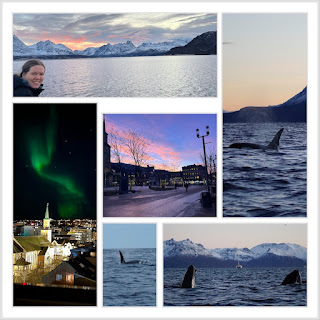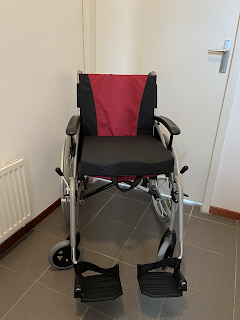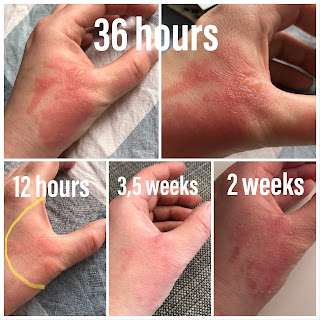A lot to swallow
It's been two months since my gastroscopy. Two months in which I'm starting to get more and more clear why I don't like eating anymore.
After consultation, the radiation doctor and the pulmonologist have decided that it is wise to have the ENT doctor take a look. That appointment is still pending. More and more I'm not looking forward to eating anymore. So much that it gives me panic attacks. I decide to contact the ENT department to discuss what is possible, maybe I can already get in touch with a dietician or psychologist. I'm afraid the fear of food is getting bigger and bigger. When I contact them, it turns out that a spot has become available for the following week. That means my appointment is almost a month earlier.
The appointment is with an ENT specialist and someone from speech therapy. These two work closely together in the field of swallowing problems. I am very nervous. What will they find, can they do something about it, what are the consequences. The appointment starts with answering all kinds of questions identify the problem. Then they will look at my vocal cords with a camera, through my nose. My vocal cords look good. They close and move nicely, so nothing wrong with that. Then I have to eat and drink some things. This is the same test I had when I was in the hospital. Water and applesauce with a blue dye and a biscuit. They can see all the food and drink pass neatly past my vocal cords when I swallow. The ENT doctor indicates that there is no medical cause for my swallowing problems. I really get the feeling that they think I'm just imagining it. She also indicates that I should not forget that I had a major surgery and also radiation and that it can feel different because of that. I understand what she's saying, but I don't think that explains the change I’m experiencing the past few months. At the end of the consult they indicate that I can make an appointment to eat with the speech therapy. I then have to bring food that I know is difficult. So we can see what's going on.
In the end I leave feeling unsatisfied. There is no cause to be seen in my throat and at my vocal cords. Plus because of what the doctor said I feel like I'm acting up. While I know very well that this is absolutely not the case.
A few weeks later I have an appointment with the speech therapist. I've brought some food that I know I’m struggle with. I've been paying extra attention to what I'm experiencing with food these past few weeks. I have started eating normally again as much as possible, despite the fact that I regularly, get my food in with pain and effort.
In addition to the lady from the speech therapy, who was also present at the previous appointment, there is also a doctor from the ENT. This doctor takes the time to hear my story, especially the findings of recent times. That already gives me a much better feeling than the last appointment. The swallowing problems I experience are around the scar/radiation area. It seems like food is moving very slowly through my esophagus. When I explain this to him, he immediately responds that it sounds like late radiation damage in my esophagus. Then I have to start eating. That is indeed as difficult as usual. If I indicate that I can't get rid of it properly, they will look again with a camera. They see the same as last time, the food disappears neatly through the vocal cords without leaving anything behind.
The doctor explains that the damage that can occur, passing a longer time since radiation, in the esophagus is that the muscles no longer work properly. The mucous membranes are also affected, making it drier in the esophagus (and also in the trachea), making it less easy for food to slide down.
The conclusion by exclusion: late radiation damage in my esophagus that makes swallowing more difficult. And there is nothing they can do about it. So I will have to learn to deal with it. One day eating will be easier than the other day. There is no reason not to eat normally. It is not dangerous or otherwise harmful. But I have already noticed that sometimes I just don't think it's worth eating with pain and effort. So I choose something easy like soup.
It's only when I'm in the car on the way home that it starts to sink in. Again I belong to that small percentage, the radiation doctor has indicated that about 1% of the people who receive this dose of radiation experience these kinds of problems. Eating is something that many people take for granted, but for me it will never be that way again.
Fortunately, I can look back on a wonderful journey between all the hospital visits. A wonderful trip to the north of Norway together with my daughter. We saw orcas and the northern lights which we wanted. In addition, as a bonus: humpback whales, beautiful surroundings, beautiful pastel colored skies, it was a trip to remember forever. And that's the most important lesson I've learned in recent years: don't put off what you want to do, after all, you never know what will throw a spanner in the works.




Comments
Post a Comment